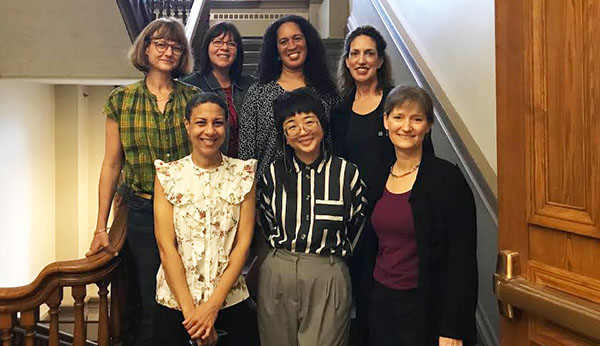Document Type
Article
Publication Date
11-28-2018
Publication Title
Politics & Gender
Abstract
This article presents an analysis of how activists, politicians, and the media framed youth involvement in the sex trade during the 1970s, the 1990s, and the 2000s in the United States. Across these periods of public concern about the issue, similar framing has recurred that has drawn upon gendered and racialized notions of victimization and perpetration. This frame has successfully brought attention to this issue by exploiting public anxieties at historical moments when social change was threatening white male dominance. Using intersectional feminist theory, I argue that mainstream rhetoric opposing the youth sex trade worked largely within neoliberal logics, ignoring histories of dispossession and structural violence and reinforcing individualistic notions of personhood and normative ideas about subjectivity and agency. As part of the ongoing project of racial and gender formation in US society, this discourse has shored up neoliberal governance, particularly the build-up of the prison industrial complex, and it has obscured the state's failure to address the myriad social problems that make youth vulnerable to the sex trade.
Keywords
commercial sexual exploitation of youth, domestic minor sex trafficking, juvenile prostitution, racialized rescue narratives, public policy, social movements
First Page
1
Last Page
28
DOI
doi:10.1017/S1743923X18000661
Creative Commons License

This work is licensed under a Creative Commons Attribution 4.0 International License.
Rights
“Licensed to Smith College and distributed CC-BY under the Smith College Faculty Open Access Policy.”
Version
Author's Accepted Manuscript
Recommended Citation
Baker, Carrie N., "Racialized Rescue Narratives in Public Discourses on Youth Prostitution and Sex Trafficking in the United States" (2018). Study of Women, Gender, & Sexuality: Faculty Publications, Smith College, Northampton, MA.
https://scholarworks.smith.edu/swg_facpubs/14



Comments
Link to Published Paper:
https://muse.jhu.edu/article/705520